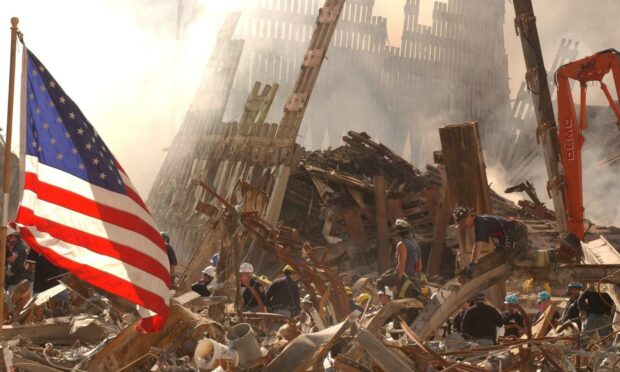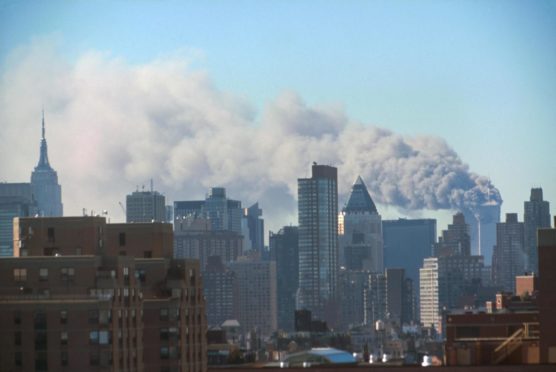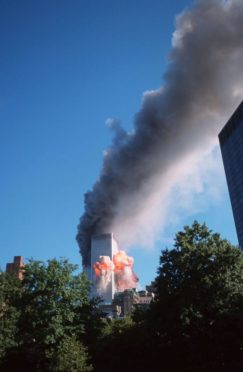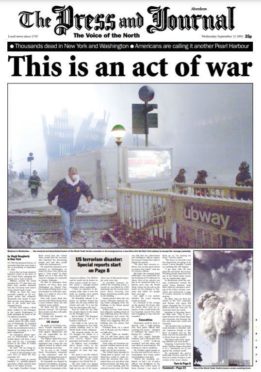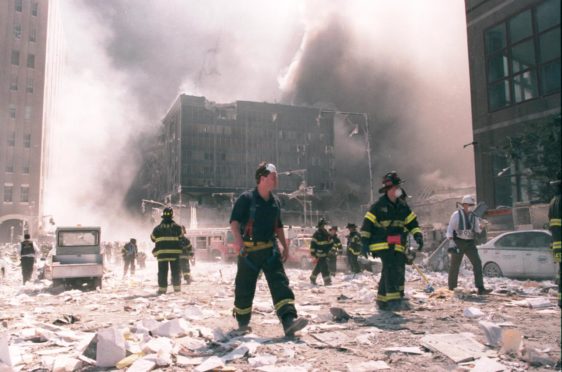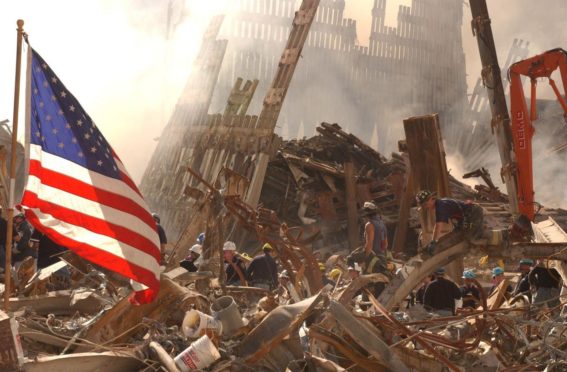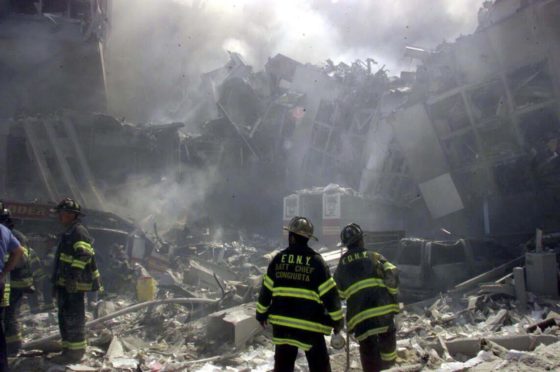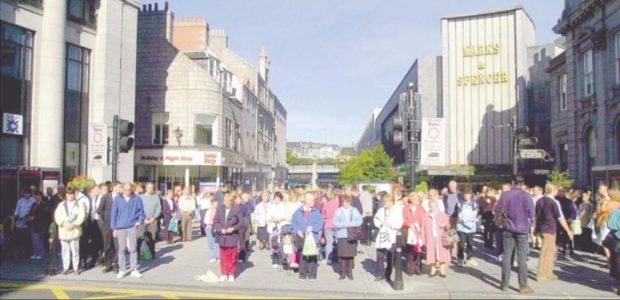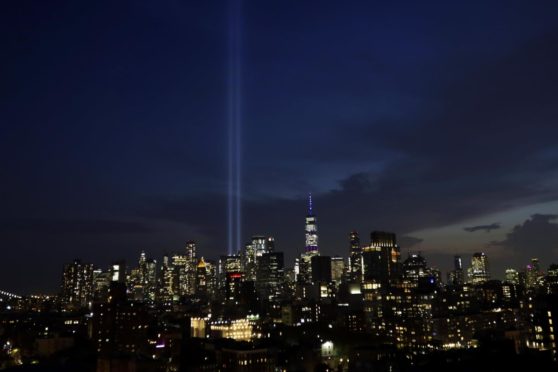In the immediate aftermath of the first World Trade Center blast, witnesses spoke of an eerie silence that descended on the usually non-stop New York.
Silence, as a black cloud swamped streets, buildings and stunned spectators, who could not quite comprehend what they had seen.
But an ominous silence too for families back in Scotland.
Desperate phone calls to loved ones rang out as they could only watch as a tragedy, thousands of miles away, unfolded on television.
As days passed, that silence became overbearing for one Western Isles family as hoped ebbed away, replaced with grief.
The world changed forever
September 11 2001 started as innocuously as any other day that wet autumn.
The UK headlines in the weeks beforehand dominated by the ongoing foot and mouth crisis, the Euros, a resurgence in troubles in Northern Ireland and hostilities in Afghanistan.
But 9/11 was the day the world changed forever; a moment in time where everyone remembers what they were doing.
The later editions of the Evening Express dropping through letterboxes brought scenes of devastation to doormats across the north-east.
Families were frantically contacting relatives living or holidaying in New York.
Aberdeen newlyweds Steven and Sheena Rae were on honeymoon in Manhattan and just setting out on a trip to the World Trade Center for brunch when the first jet crashed.
But with phonelines jammed, their families in Aberdeen had an agonising six-hour wait before they received an email to say they were safe and well.
It was a similar story for Aberdonians Euan Keith and Lesley Crichton who were due to visit the World Trade Center that day.
In a chilling twist of fate, the tourists got on the wrong train and had to change their plans.
Still, it was an anxious wait for relatives in Aberdeen who described feeling “numb” until they heard the following morning that the pair were safe.
A relieved family member said: “If they hadn’t got on the wrong train … I don’t even want to think about it.”
Holidaymakers Duncan and Alison Wood were the first to touch down at Aberdeen International Airport after being stuck in New York for days.
They were going to go shopping at the World Trade Center when they heard what happened before leaving their hotel.
The following day they said the city was a ghost town, choked with dust, and that they “could see and taste the dust” which got in their eyes and mouths.
Anguish for Western Isles family
For every phone call or email sent to reassure families, dozens more continued waiting in anguish for news of missing loved ones.
Hours turned to days for the family of Gavin Cushny from the Western Isles.
The computer consultant was working for financial services firm Cantor Fitzgerald in the tower that was hit by the first plane.
Flight 11 crashed into the North Tower between floors 93 and 99; Gavin’s office was on the 104th floor.
His fiancee, Susan Brady, from New Jersey desperately rang round hospitals and quizzed rescue workers for news to relay back to Gavin’s mother, Sybil, on the Isle of Lewis.
But after nine days, it became apparent that Gavin was one of the victims of the tragedy.
He and Susan had been due to marry in the church in Stornoway where his late father preached that October.
But instead of coming together in celebration, Gavin’s family were united in grief for his funeral.
Gavin’s coffin returned to Stornoway draped in an American flag, where mourners gathered for a private ceremony.
At the time, his family released a statement through the then Northern Constabulary: “Our lives changed forever on September 11 and the loss of Gavin has been a terrible shock to us all.
“Gavin worked for brokerage firm Cantor Fitzgerald on the 104th floor of the North Tower of the World Trade Center and the shock of what happened, as you can imagine, has not left us.”
Aberdeen pays respects
In Aberdeen in the days after the disaster, a steady flow of people made their way to the Town House to sign books of condolence.
The two simple black books conveyed heartfelt messages of grief amid reports of increasing death tolls and casualty lists.
And on Friday 14th, the city stood still alongside the international community in silently grieving the dead.
Traffic lights were simultaneously changed to red and idling buses on Union Street put their engines off.
The silence only broken by the cry of a seagull.
Lord Provost Margaret Smith stood with her hands clasped flanked by the Salvation Army, while sheriffs, solicitors and the public stood with bowed heads in the nearby Sheriff Court.
The sombre mood was captured by a reporter at the scene: “The Town House clock chimed solemnly on the stroke of 11am and silence fell.
“Despite the bright autumn sun a shadow passed across Aberdeen’s granite face as the city ground to a halt.
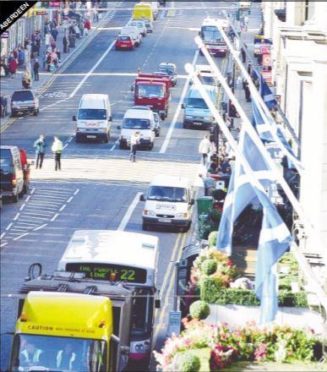
“Above the Town House a Union Jack hung limply at half mast and two Saltires flew above E&Ms.
“Pockets of people were grouped in doorways outside buildings to observe the three minutes’ silence.”
The atrocities at the hands of Al-Qaeda on 9/11 claimed the lives of 2,977 men, women and children – 67 of those Brits – and left more than 25,000 injured.
Twenty years on, the victims will today be remembered in moments of silent reflection across the world.
